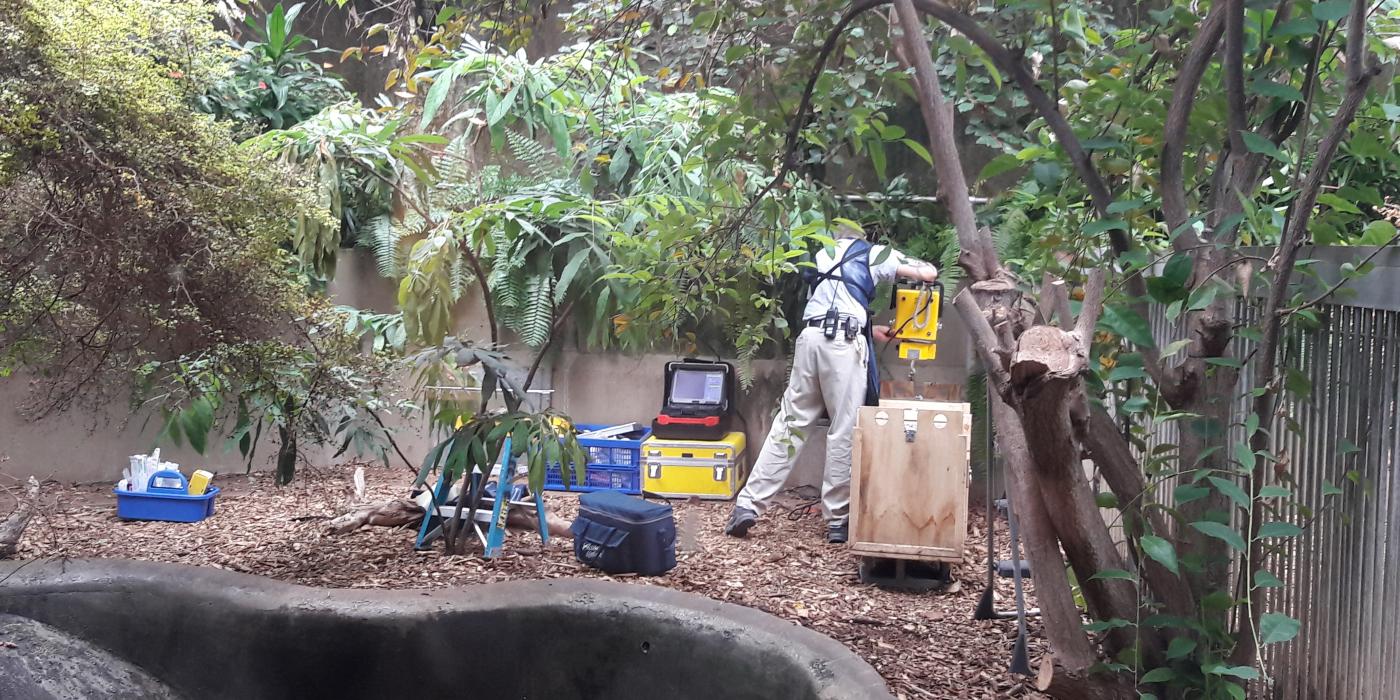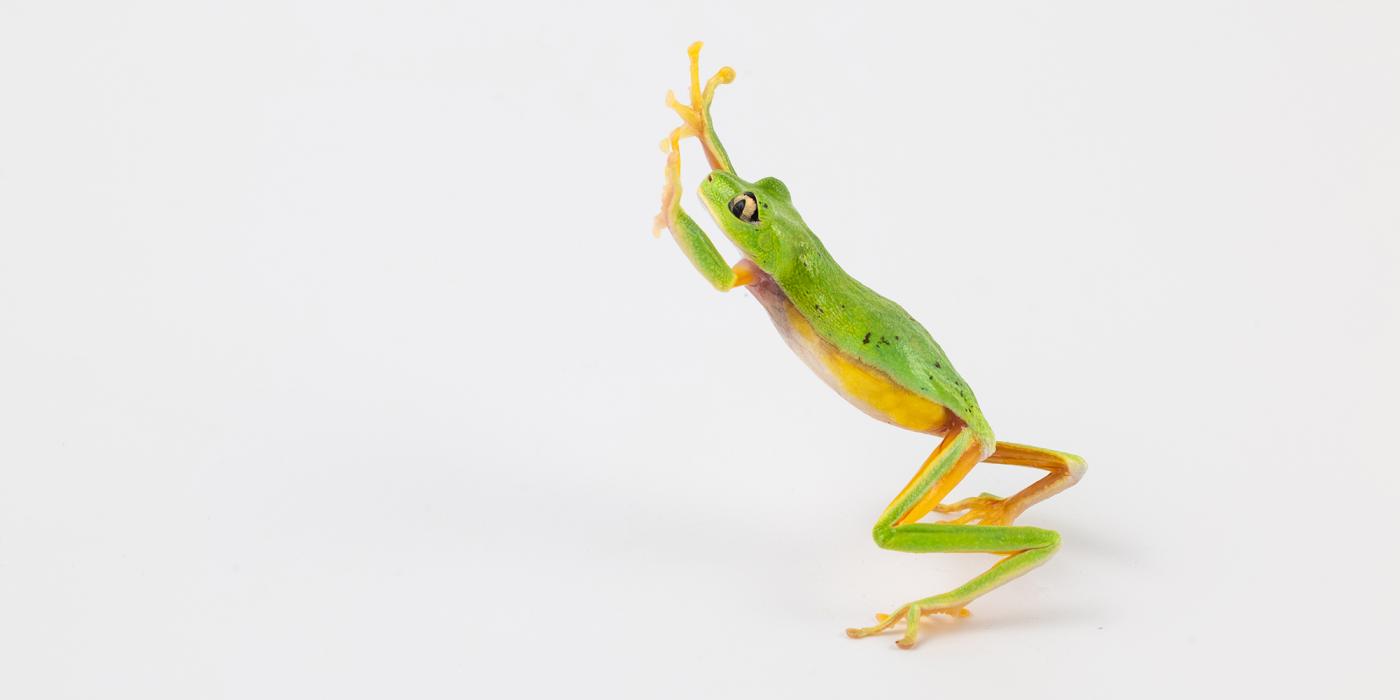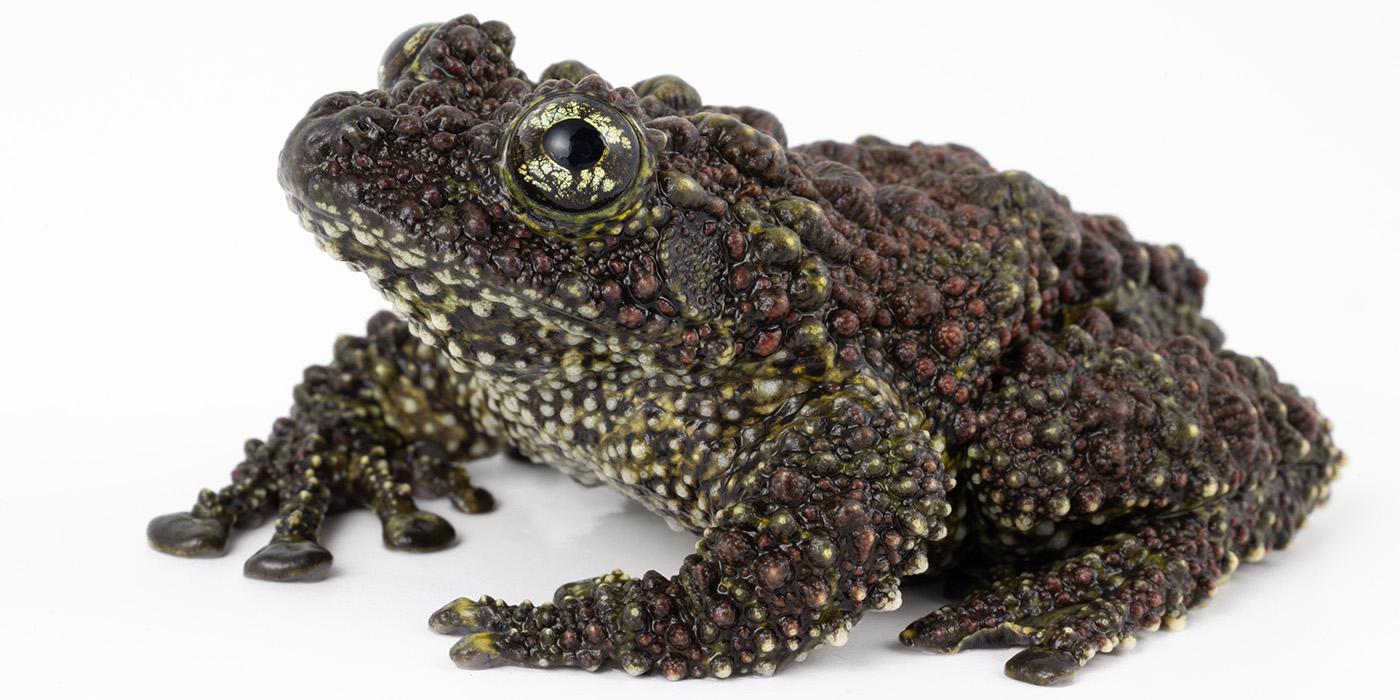A Surprise Egg
In March, Rose, one of our female Cuban crocodiles, underwent a series of tests to determine if she is still capable of producing healthy eggs. It all began with an egg—a perfectly smooth, white, oval-shaped, normally-sized egg. Rose had laid this egg, however, two months early. Nesting season for Cuban crocodiles does not typically begin until late April or early-May, just as breeding season ends.
As a precaution, our veterinarians x-rayed Rose laterally (from the side) and ventrally (bottom to top) in order to get a better sense of exactly when her loner “premature” egg may have been produced. It was possible that the egg was actually from the previous year and that there may have been more leftover eggs.
Crocodilians, like other reptiles, lay their eggs in a clutch (all at once). It is not unheard of for an egg to remain in the reproductive tract, calcify over the course of the year, and to appear the following season. If that were to happen though, it could cause health complications.
The original plan was to assess Rose’s premature egg for over calcification, fertility and other health concerns. Unfortunately, the egg was swallowed whole by Miguel, Rose’s male partner, before keepers could remove it from the enclosure. Swallowing an egg may seem strange, but it’s actually normal croc behavior.
Although the egg was gone, Rose was still examined by veterinarians after she was safely shifted into a specially-made crate. It allows the veterinarian and keepers to touch and closely examine Rose, which is too dangerous to do when she is outside of the crate.
Fortunately, Rose was given a clean bill of health by our veterinarians and keepers will be monitoring her closely.
Related Species:



